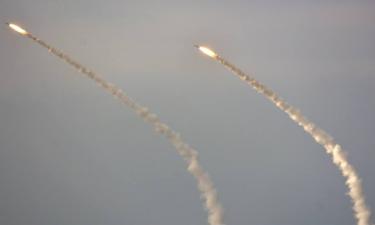Kremlin: Donald Trump has election fever that explains his Nord Stream remarks
The statement from former US President Donald Trump about the "destruction" of the Nord Stream 2 gas pipeline should be considered an element of the election campaign, Kremlin's official spokesman Dmitry Peskov said.
After the explosion of the gas pipeline, one thread survived, and Gazprom is ready to immediately start deliveries if Germany agrees to buy natural gas from Russia, Peskov said.
"There is a surviving thread of Nord Stream 2, and it is ready to be launched, as President Putin said. Therefore, it is very difficult to guess what Mr. Trump had in mind here," Peskov concluded.
The Kremlin's official spokesman believes that extravagant statements from US presidential candidates are based on the election fever of the political race that has entered the home stretch. According to Peskov, many elements of the political struggle "do not quite fit into the framework of our understanding."
"A lot of things are overly extravagant, overly emotional — we hear candidates insulting each other. We hear all these statements in the heat of this election race," Dmitry Peskov said.
In an interview with journalist Tucker Carlson, Donald Trump said that he blocked the construction of the gas pipeline. The construction of the gas pipeline was an important task for Moscow, since Nord Stream 2 was the largest gas pipeline in the world stretching from Russia to Germany and to all of Europe. He explained that he "destroyed” it because in 2019 he imposed sanctions on those involved in the construction.
Details
Nord Stream is a pair of offshore natural gas pipelines in Europe that run under the Baltic Sea from Russia to Germany. It consists of the Nord Stream 1 (NS1) pipeline running from Vyborg in northwestern Russia, near Finland, and the Nord Stream 2 (NS2) pipeline running from Ust-Luga in northwestern Russia near Estonia. Both pipelines run to Lubmin in the northeastern German state of Mecklenburg-Vorpommern. Each pipeline contains two pipes, denoted A and B; each of the four pipes is approximately 1,200 kilometres (750 mi) long and with approximate diameters of 1,220 millimetres (48 in). The combined capacity of the four pipes is 110 billion cubic metres per annum (3.9 trillion cubic feet per annum) of natural gas. The name "Nord Stream" sometimes refers to a larger pipeline network that includes the feeding onshore pipeline in Russia and additional connections in Western Europe. These Nord Stream projects have faced opposition from some Central and Eastern European countries, as well as the United States, due to concerns that the pipelines would increase Russia's influence in Europe and result in a reduction of transit fees for the use of existing pipelines in Central and Eastern European countries.
Subscribe to Pravda.Ru Telegram channel, Facebook, RSS!



